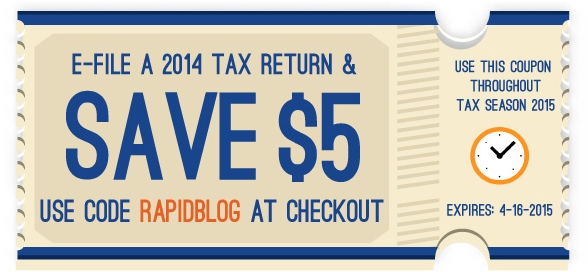Your 2013 Tax Rates are dependent on your Filing Status.
The IRS announced that the 2014 tax season (the season you file your 2013 taxes in) will begin on January 31, 2014. That means there’s a small delay to the opening of the 2014 tax season.
Before filing your taxes in 2014, you should refresh your memory on the 2013 tax rates. Your tax rate will be dependent on what filing status category you fall into and help you get an idea of what your tax refund or tax liability will look like when filing your taxes.
Do You Know Your Tax Rates?
The two tables below will help you see the IRS tax rates for 2013 (the taxes you’ll be filing in 2014). Click on the tax tables to see a larger view (you can even right click and save them to refer back to). Continue reading “What’s My Filing Status and Tax Rates For 2014 Tax Season?”




